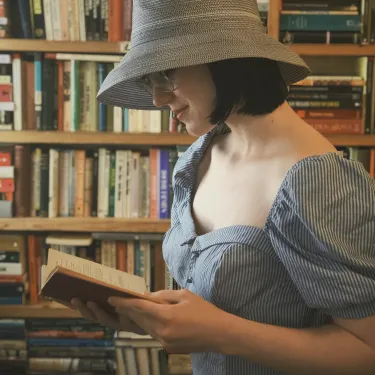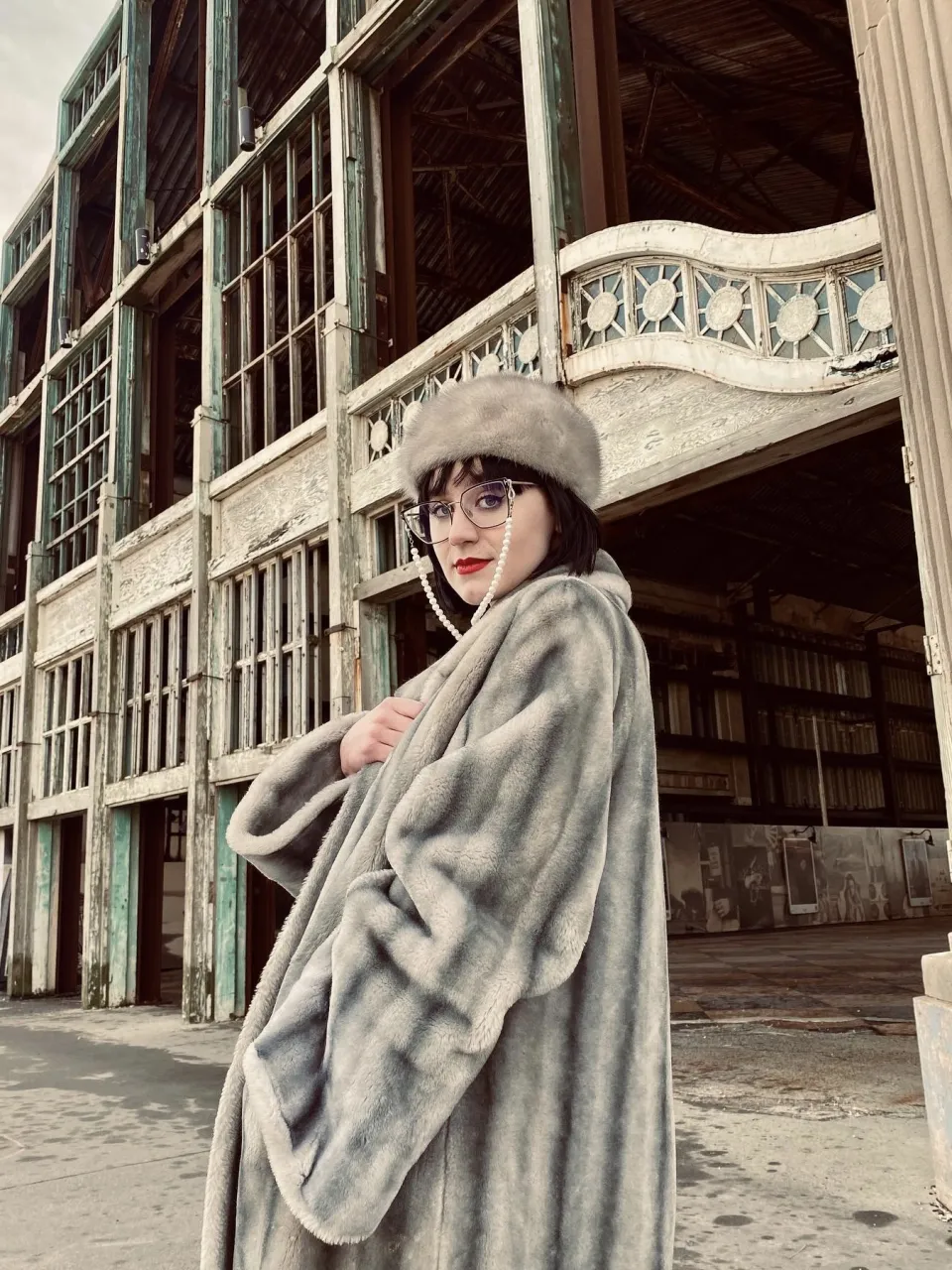Vivian DeRosa ’24
Smithie Snapshots

Other clubs, sports and activities you’d like to mention:
I’m an archival processing assistant in Special Collections and the Northrop House historian.
Describe your concentration for someone who has never heard of your field before.
The Care and Keeping of Context.
If another student was considering an archives concentration, what would you tell them?
First: Do it!
Second: An archive concentration is an excellent choice if you’re interested in public history, writing, or information sciences, but don’t be discouraged if you’re studying something completely different. Being informed and critical about how information is preserved and/or violently excluded in both physical institutions and collective memory is an important foundation you can bring to any field of study.
How does your concentration complement your major?
I think both archives and English have the same spine: storytelling. I’m grateful for my archives capstone whenever I’m working on an English essay, because it’s honed my research skills and inquisitive instincts to better understand the temporal and cultural context of the work I’m studying; I’m grateful for my English major when I’m working on an archives project, because it’s given me the ability to create clear and compelling narratives that connect my audience with the material.
Was there ever a moment in the archives, or something that you came across, that you wish you could share with more people?
Every day! There are so many items or collections I want to show people (just off the top of my head: the Girljock zine, the Aileen C. Hernandez papers, and our World Fair records), but overall, I want to share that Smith College Special Collections is available to all students, and you don’t have to be working on a specific project to go in and explore something that’s interesting to you. Some of my best afternoons were spent soaking in the gorgeous view from the Reading Room and flipping through vintage issues of Vogue or looking at JEB’s photographs of Audre Lorde. Don’t even get me started on our collection of Valentines.
What do you see as a potential future dream job or career?
Barbie archivist. (Call me, Mattel!) Or any job in the archives, public history, library, and /or museum fields that allows me to work with both artifacts and people, preferably connecting the past to the present through accessibility and narrative.
You’re right — you are going to love it just as much as you think you will.
What’s one piece of advice you’d like to share about your time at Smith?
Take the fun totally-unrelated-to-your-major class. It might not end up being so unrelated in the long run: Intro to Costume Design with Kiki Smith, a class I took my first year, taught me so much about characterization that I’m still referencing my notes as I work on my senior year creative writing thesis. Also, take full advantage of your Kanopy account while you’re a Smith student! You have access to so many superb movies and documentaries.
What was your favorite class outside of your major?
”Oral History and Lesbian Subjects.” I had the immense privilege of conducting an oral history with an elder who was very important in my life, Trish Maloney. Trish wrote a master’s thesis about Eleanor Roosevelt’s relationships with women (“Significant Others: The Fictive Kin of Eleanor Roosevelt”), and when I was a kid, hearing it transformed my idea of history itself: that there is usually more to the stories I’d been told, and that we have been here all along. Several months after we completed the interview, Trish passed away; I miss her, I am grateful for the time this class allowed us to share, and I am indebted to what both taught me about our work — that despite being based in the past, lesbian history is relevant, urgent, and rooted in love.
Where is your favorite spot on campus?
The bench on the Mill River path —the best place to read poetry and practice my very amateurish birding skills. To quote Walt Whitman: “You must not know too much or be too precise or scientific about birds and trees and flowers and watercraft; a certain free-margin, or even vagueness — ignorance, credulity — helps your enjoyment of these things.”
What do you think is a "hidden gem"?
The sheer number of periodicals in Special Collections. Magazines are so wonderful because there are issues dedicated to almost every niche you can imagine, yet you don’t always know what you’ll find inside — you get a variety of writers and artists in one issue, and even the ads can serve as time capsules. I’d recommend checking out some of the magazines in The Sophia Smith Collection of Women's History Periodicals Collection (SSC-MS-00537). We have both Off Our Backs and On Our Backs, just for starters! If ‘mainstream’ mags aren’t your thing, you should also check out the Sophia Smith Collection Zines Collection (SSC-MS-00434).
What do you think has been the most “Smithie” thing you’ve done in life so far?
Writing an essay about the queer potential of parentheses in confessional poetry. (Shoutout to Melissa Parrish and Eng 219: Poetry, Gender, and Sexuality, and the Limits of Privacy!)
What’s your all-time favorite Smith memory?
My archives capstone presentation. I did my project on the intersecting lives of playwright Lorraine Hanbserry, poet Mary Oliver, and the woman who loved and photographed them both, Molly Malone Cook, and I relished every step of it — the research, the exhibit planning, the writing — but getting to celebrate their lives with my friends and family was an experience I hold closely in my heart.
What’s one thing you wish you could tell your first-year self about your Smith experience?
You’re right — you are going to love it just as much as you think you will.
